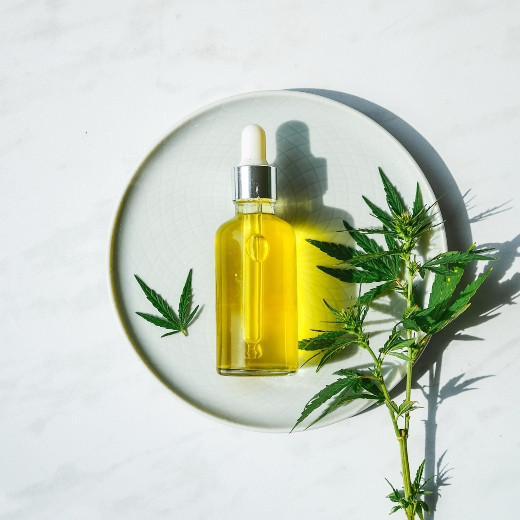Is CBD an Antioxidant?
Jun 2nd 2021
Cannabidiol (CBD) wears many hats. There are lots of reasons people use hemp products for the potential CBD benefits they provide. Listed not too far down on its resume are the antioxidant properties of CBD. What is an antioxidant? Why should you care that CBD exhibits antioxidant properties?
What Makes Something an Antioxidant?
Cells generate free radicals as waste resulting from the processing of foods as well as from reactions to the external environment. An increase in free radical production can be in response to internal factors, like inflammation, or external factors, such as cigarette smoke, air pollution, and UV radiation. As the concentration of free radicals increases, oxidative stress occurs, harming cells and body function. Oxidative stress has been linked to a number of ailments including Parkinson’s, heart disease, stroke, arthritis, cancer, and many more.1
Antioxidants are believed to neutralize free radicals in the body, reducing oxidative stress and improving overall health. The human body does create its own endogenous antioxidants, but antioxidants can also be consumed as reinforcements in the body’s battle against oxidative stress.1 A lot of research is being done into CBD’s effect on the human body, and evidence has shown that CBD has displayed a variety of antioxidant properties, helping to reduce free radicals.2 This doesn’t quite make CBD oil a traditional superfood, but it does make a nice addition to the list of potential hemp benefits.
Is CBD the Only Antioxidant in CBD Hemp Oil?
There is a wide variety of CBD hemp oils and classifications available on the market, and depending on what you get, it may contain other ingredients that exhibit antioxidant properties.
There are CBD isolate oils that contain nothing other than pure CBD as an active ingredient. In that regard, CBD will be the only antioxidant present in these oils. However, there are also full-spectrum CBD oils and broad-spectrum CBD oils available containing either the full or broad spectrum (respectively) of cannabinoids, flavonoids, and terpenes from the plant from which they were derived. Some terpenes found in cannabis, such as myrcene, have shown evidence to have antioxidant properties.3 In addition, certain flavonoids in cannabis also exhibit antioxidant properties.4
When the full spectrum of cannabinoids, flavonoids, and terpenes are taken together, they are believed to produce the “entourage effect.” This is a synergistic effect wherein each compound enhances the effect of the other compounds for a greater total of potential hemp oil benefits received.5
Try CBD tinctures for yourself and see which one works best for you!
References
1https://www.medicalnewstoday.com/articles/301506#benefits
2Atalay, Sinemyiz et al. “Antioxidative and Anti-Inflammatory Properties of Cannabidiol.” Antioxidants (Basel, Switzerland) vol. 9,1 21. 25 Dec. 2019, doi:10.3390/antiox9010021
3https://www.karger.com/Article/FullText/509733#
4Jin, Dan et al. “Secondary Metabolites Profiled in Cannabis Inflorescences, Leaves, Stem Barks, and Roots for Medicinal Purposes.” Scientific reports vol. 10,1 3309. 24 Feb. 2020, doi:10.1038/s41598-020-60172-6

